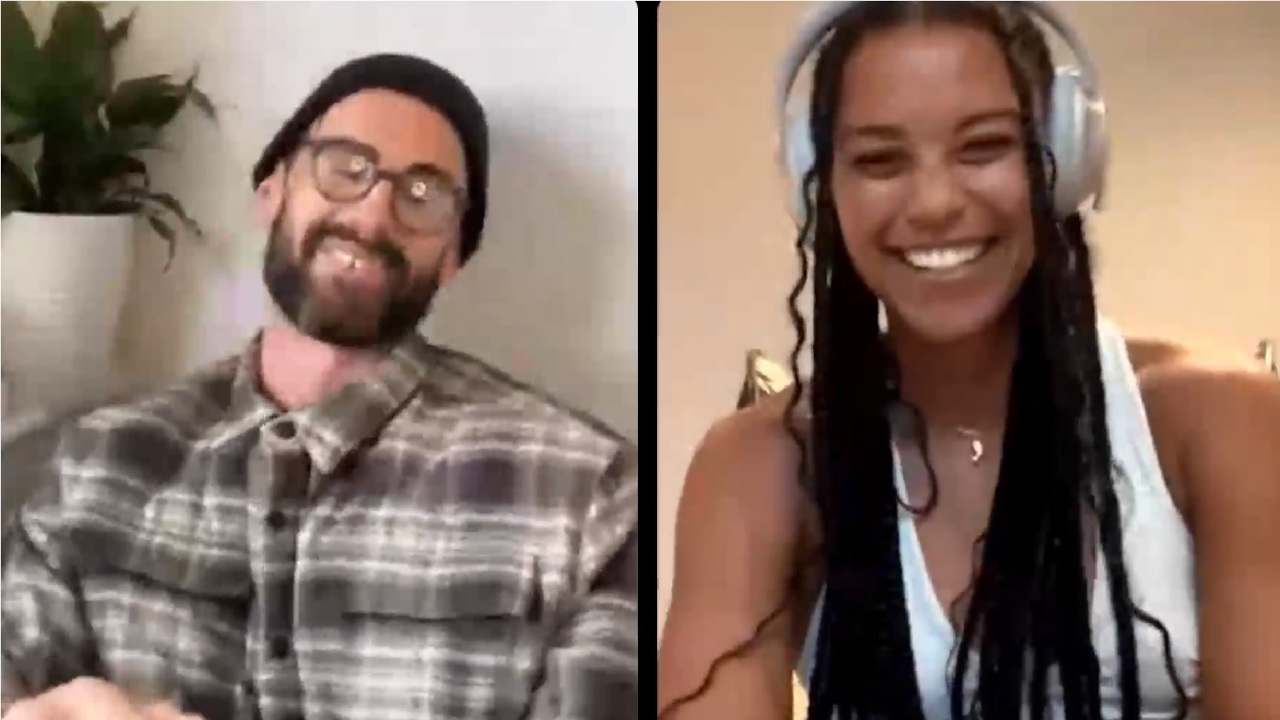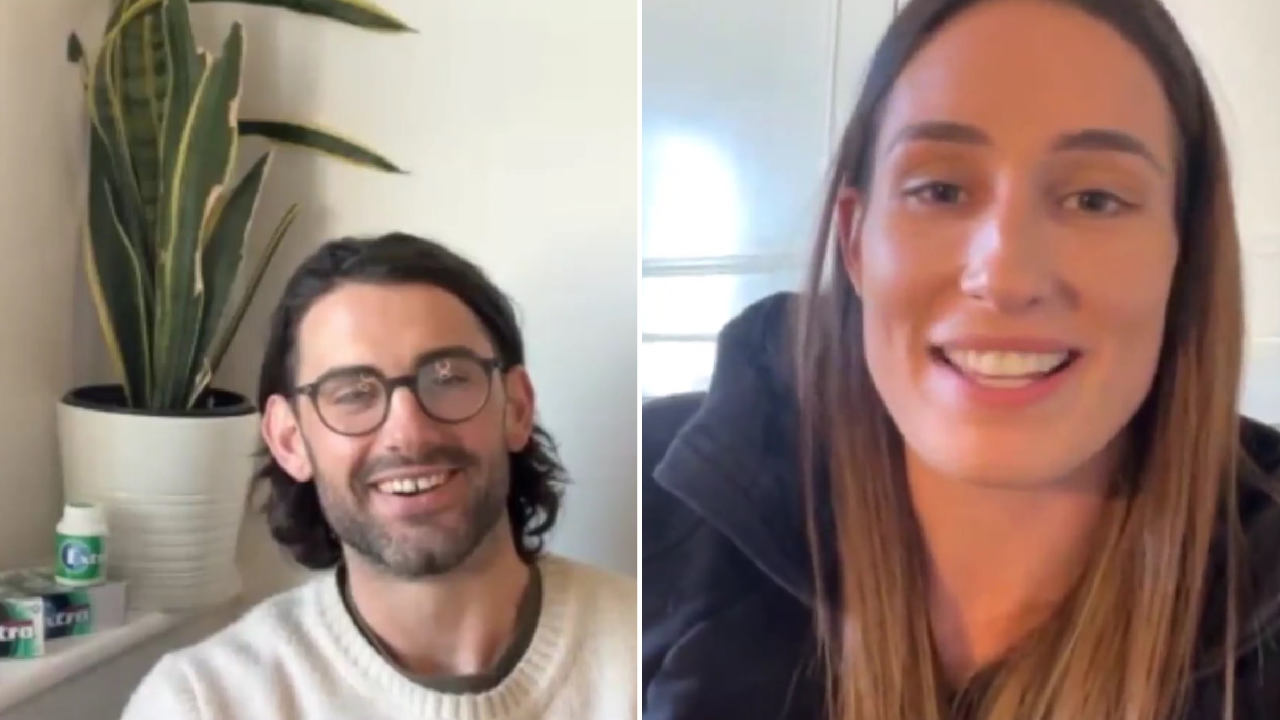‘SHOULD I TAKE THE JOB?’
There are strong similarities between our situations, with some small differences. I took over from Rodney Eade in 2002 with 10 weeks to go in that season. We had lost the previous game and weren’t playing well, whereas Brad walked out having won the last game.
Being offered a caretaker role is a double-edged sword and you are aware of the inherent risks.
If you end up getting the job in the long term then it’s better, of course, because you have had that 10 weeks – in my case – to get up and running and it’s a significant advantage going into the pre-season and following season.
The downside is that you don’t know if you are going to get the job and yet you’re putting your coaching career on the line, almost always with a team that’s not travelling well.
That would be going through Rhyce’s mind, as it went through my mine. ‘I could coach for 10 games and never ever coach anywhere again.’

That’s probably the hardest part of it, taking a role that you don’t know where it’s going to end up. But you have to put that to the side, do the best you possibly can and hope that the results speak for themselves.
I remember having the discussion with my wife and saying, ‘should I take the job?’ You’re very aware that if you mess it up you’re probably not going to get the chance again.
I’m sure he would have had similar discussions and thought deeply about it. You’re tossing it up in your mind. ‘If I do knock it back and someone else gets it and does a really good job and goes on and win a premiership … ‘
Being offered a caretaker role is a double-edged sword and you are aware of the inherent risks.
It’s a bit like an acting role. You get offered the part as James Bond but pass it up to do another movie that ends up being a stinker. You’re 100 per cent thinking about both scenarios and there is no manual for it, no right or wrong answer.
Most people would do it because they see it as an opportunity. Some may use it as a learning process and decide after two weeks they don’t want to be a senior coach.
But you do know it’s a risk. A lot of caretakers have never gone on and gotten the gig.
You quickly realise that as invested as you are in an assistant coaching role it’s dramatically different as a senior coach. Emotional investment is at another level. It’s not so much the hours, which are always long, but the strain of the thought processes in those hours.
It’s always there – you’re thinking about selection, the game plan, scenarios. You think about it most of the time.
HOW TO PLAY THE GAME
I’m impressed by what I’ve seen of Rhyce in the early weeks, but not surprised.
The first week is very important for caretakers. I had to focus around the positivity of the players whereas what Rhyce would have had to do was first help the players overcome the disappointment of losing their coach. I think the Kangaroos’ players were genuinely shocked when Scott decided to step away from the job.
Even if you want to, you can’t fix everything. You’ve got to pick one or two things you want to get right for the rest of the season.
You almost break it down into a mini season – what’s done is done. Whatever that win-loss is you start afresh. He had 12 weeks and it’s a case of focusing on one or two things to get right, not changing things dramatically, and keeping it nice and simple.
You don’t come from the standpoint that there was something wrong with the previous coach, but about making it different enough so the players don’t think it’s a drag. ‘Here we go, here we go, another game’.
I brought him to the Swans in 2008. Picked him up at the airport the day he arrived, which I know surprised him. I told him, ‘I want you to come and play with us, the least I can do is pick you up at the airport’.
They’ve had some strong results and the Collingwood game on the weekend showed the players have bought in. You heard players talking afterwards about how he simplified the game, and you can see it’s quite different how they play now under Rhyce than they did under Brad.
He’s been able to change the style significantly in a short amount of time.
They’ve become a lot more of a front half team. Their midfield now spreads really hard sideways, not just running forward to the next contest.
If you’ve got six players all chasing the ball and the other team wins it, there’s no one to keep it in the forward line because they just squirt it out sideways.

He’s done well to identify that if you can’t get to where the ball is, you now spread hard defensively with your opponent to stop them from moving the ball up the field.
They’re able to keep it in their forward half a lot more and create forward-half turnovers. Before, they were a bit easier to move the ball against and were comfortable defending in the back half of the ground.
Under Brad they were more a high-handball, low-kick team. They don’t over-handball anymore and they’re kicking it more. They’re more conservative with the ball and not turning it over so much. They’re the main things I’ve noticed in his relatively short amount of time as head coach.
I thought North were better than how they were playing. They had way more talent than people were giving them credit for. I could see there were some flaws in their game and I knew when Rhyce got the job he’d be trying to fix those flaws, and he’s been able to do it.
I’m less surprised by the improvement and more surprised they weren’t going well at the start of the year.
To Brad’s credit, he was honest about being in a different phase. He seemed to realise he had run his race. He did a fantastic job for 10 years and had probably worn himself out a bit. That’s understandable because it’s a long time to coach a footy team.
I thought with Ziebell, Cunnington, Tarrant and Ben Brown and some good young kids they had enough talent, and I had a lot of faith in Rhyce that he understood what he needed to do with them.
He knows what success looks like. I think he learned really well at the Swans and Collingwood.
He’s worked under a lot of coaches. He makes clear decisions. That’s what I see: he’s made a change that he knows if they keep going the way they’re going, it will give them the best chance to eventually challenge for a premiership.
You don’t make change for change’s sake, you make change because you want to win games and win premierships. That’s what I see that he’s trying to do and he’s got a clear understanding of what that path looks like.
More about: Carlton | Coaching | Collingwood | Grand Final | North Melbourne | Paul Roos | Sydney Swans




 Load More
Load More